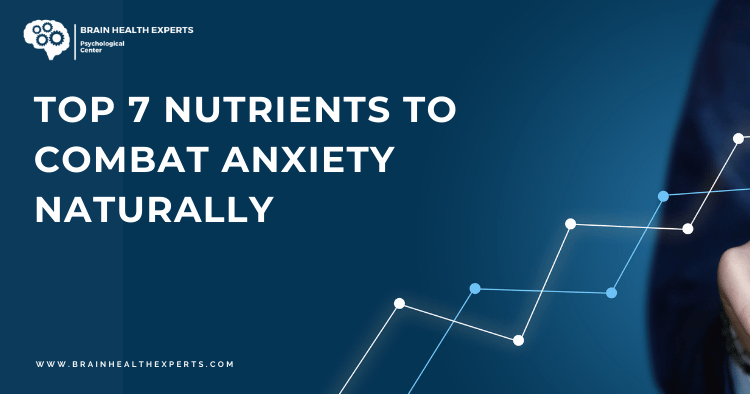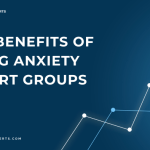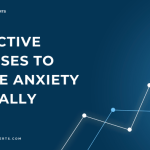Table of Contents
- Introduction
- 1. Omega-3 Fatty Acids
- 2. Magnesium
- 3. B Vitamins
- 4. Vitamin D
- 5. Zinc
- 6. Probiotics
- 7. Antioxidants
- Conclusion
- FAQs
Introduction
In today’s fast-paced world, anxiety has become a common issue affecting millions of people. While therapy and medication are traditional routes for managing anxiety, nutrition plays a vital role in mental health that often goes overlooked. Research shows that certain nutrients can help alleviate anxiety symptoms naturally. In this article, we will explore the top seven nutrients that can help combat anxiety and promote a sense of calm.
“Nutrition is not just about eating; it’s about learning to live.”
1. Omega-3 Fatty Acids
Omega-3 fatty acids are essential fats that our bodies can’t produce on their own, making it crucial to obtain them from our diet. They are known for their anti-inflammatory properties and play a significant role in brain health.
How They Help
Studies have shown that Omega-3s can help reduce anxiety levels. They influence the production of neurotransmitters like serotonin and dopamine, which regulate mood. Research from 2024 indicates that Omega-3 supplementation can significantly improve emotional regulation, thereby reducing anxiety symptoms.
“Omega-3s are like the oil in your brain’s machinery, helping it run smoothly.”
Sources
- Fatty fish: salmon, mackerel, sardines
- Chia seeds
- Walnuts
- Flaxseeds
Recommended Intake
Aim for at least two servings of fatty fish per week, or consider a high-quality fish oil supplement after consulting a healthcare professional.
2. Magnesium
Magnesium is a mineral that’s vital for numerous bodily functions, including nerve function and muscle relaxation. It also plays a role in the regulation of cortisol, the stress hormone.
How It Helps
Research indicates that magnesium deficiency is linked to increased anxiety. A 2025 study highlighted that magnesium supplementation can significantly promote relaxation and improve overall mood, particularly in those experiencing chronic stress.
“Think of magnesium as your body’s natural chill pill.”
Sources
- Leafy greens: spinach, kale
- Nuts and seeds: almonds, pumpkin seeds
- Whole grains
- Dark chocolate
Recommended Intake
Adults should aim for 310-420 mg of magnesium daily, depending on age and gender.
3. B Vitamins
B Vitamins, especially B6, B12, and folate, are essential for brain health and the production of neurotransmitters that help regulate mood.
How They Help
Low levels of these vitamins have been associated with increased anxiety and depression. Supplementing with B Vitamins has shown positive effects on mood and emotional well-being. New findings in 2024 emphasize their role in stress resilience and cognitive function.
“B Vitamins are the unsung heroes of your mental health toolkit.”
Sources
- Whole grains
- Eggs
- Dairy products
- Leafy greens
Recommended Intake
Aim for a balanced diet rich in B vitamins, or consider taking a B-complex supplement if needed.
4. Vitamin D
Vitamin D, often called the “sunshine vitamin,” is crucial for overall health and well-being. It plays a role in brain function and mood regulation.
How It Helps
Research suggests a correlation between low levels of Vitamin D and increased anxiety levels. A 2025 meta-analysis concluded that adequate Vitamin D levels are associated with lower anxiety and improved mood stability, especially during winter months when sunlight is less available.
“Vitamin D deficiency can dim the light on your mental well-being.”
Sources
- Fatty fish
- Fortified foods (milk, cereals)
- Egg yolks
- Mushrooms
Recommended Intake
Aim for 600-800 IU of Vitamin D daily, especially during the winter months.
5. Zinc
Zinc is a trace mineral that plays a crucial role in brain health, immune function, and hormone regulation.
How It Helps
Studies have shown that zinc supplementation can significantly reduce anxiety symptoms, particularly in individuals with zinc deficiency. A 2024 study reinforced its importance in maintaining emotional stability and reducing stress levels.
“Zinc is a small mineral with a big impact on your mood.”
Sources
- Oysters
- Red meat
- Poultry
- Beans
Recommended Intake
For adults, the recommended daily allowance (RDA) is 8 mg for women and 11 mg for men.
6. Probiotics
The gut-brain connection is a fascinating area of study, and probiotics play a significant role in maintaining gut health.
How They Help
An imbalance in gut bacteria can lead to increased anxiety and mood disorders. Probiotics help restore healthy gut flora, which can positively influence mental health. Recent studies from 2024 indicate that probiotics can improve gut health and significantly reduce anxiety symptoms.
“Healthy gut, healthy mind: the link between probiotics and mental wellness.”
Sources
- Yogurt
- Kefir
- Sauerkraut
- Kimchi
Recommended Intake
Incorporate probiotic-rich foods into your diet regularly, or consider a probiotic supplement after consulting a healthcare provider.
7. Antioxidants
Antioxidants help combat oxidative stress, a condition that can lead to anxiety and other mental health issues.
How They Help
Foods rich in antioxidants can protect your brain from damage and improve overall mood. They help combat inflammation and promote brain health. A 2025 study showed that a diet high in antioxidants is linked to lower levels of anxiety and depression.
“Antioxidants are like bodyguards for your brain, shielding it from harm.”
Sources
- Berries (blueberries, strawberries)
- Nuts and seeds
- Dark chocolate
- Green tea
Recommended Intake
Incorporate a variety of antioxidant-rich foods into your daily diet for optimal benefits.
Conclusion
Managing anxiety naturally is not solely about eliminating stressors but also about nurturing your body with the right nutrients. Incorporating Omega-3 fatty acids, magnesium, B vitamins, Vitamin D, zinc, probiotics, and antioxidants into your diet can make a significant difference in your mental health. Always consult with a healthcare professional before making any major dietary changes or starting new supplements.
“Your diet is a powerful tool in your mental health arsenal.”
For more insights on enhancing your mental health and combating anxiety, check out related articles such as 10 Proven Stress Management Techniques for Daily Relief and 10 Effective Strategies to Manage Anxiety and Improve Mental Health.
FAQs
Q: Can I get all these nutrients from food alone?
A: Yes, a balanced diet rich in fruits, vegetables, whole grains, lean proteins, and healthy fats can provide most of these nutrients. However, some individuals may benefit from supplements.
Q: How long does it take to see improvements in anxiety with dietary changes?
A: While some may notice improvements within weeks, it can take several months for dietary changes to have a noticeable effect on anxiety levels.
Q: Are there any side effects from increasing these nutrients?
A: Most nutrients are safe when consumed in recommended amounts. However, excessive intake of certain nutrients (like magnesium or zinc) can lead to adverse effects. Always consult a healthcare professional.
For further reading, you may want to explore resources from:





